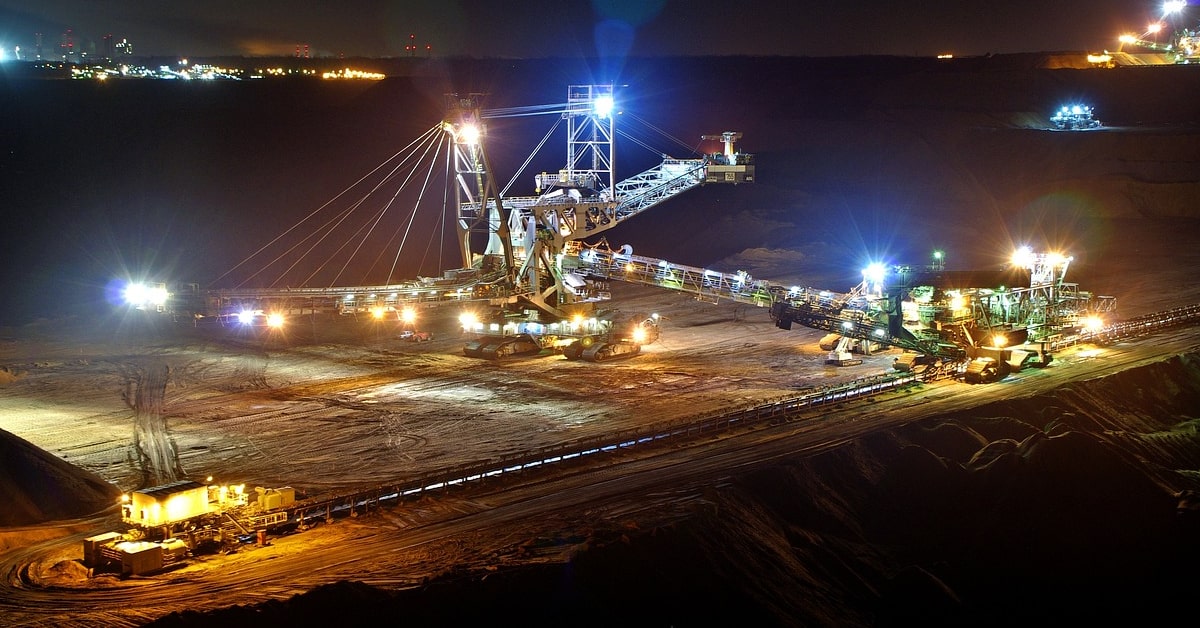学习交易
A Comprehensive Guide to Investments in the Mining Industry

Why Invest in the Mining Industry?
The demand for raw materials, such as precious metals and minerals, tends to remain strong even during economic downturns. These commodities are vital for continuous economic growth and development, as they are used in a wide range of products and services. Precious metals, in particular, often retain their value or even appreciate when other asset classes may be declining. This makes them a safe haven for investors looking to protect their wealth from the eroding effects of rising prices.
Downside: The mining industry can be capital intensive, with significant upfront costs required to develop and operate mines. Additionally, the industry is subject to environmental regulations and fluctuations in commodity prices, which can impact profitability. Furthermore, mining operations can have negative social and environmental impacts, including land degradation, water pollution, and displacement of local communities.
It is important to weigh these potential drawbacks against the potential benefits before making any investment decisions.
Exchange-Traded Funds (ETFs) in the Mining Industry
Exchange-traded funds (ETFs) have become a popular way for investors to gain exposure to the mining industry without the complexity of direct commodity trading or the need to analyse individual mining stocks. ETFs are investment funds traded on stock exchanges, much like stocks.
Mining ETFs are typically designed to track the performance of an index of mining companies or the price of a specific commodity. This allows you to invest in a broad range of mining assets, spreading your risk across multiple companies or commodities.
Moreover, ETFs are known for their liquidity, as they can be bought and sold throughout the trading day at market prices. This provides you with the flexibility to react quickly to market changes, a valuable trait given the volatile nature of the mining sector.
Trading in mining ETFs also comes with lower costs compared to mutual funds, as they generally have lower management fees and do not require a minimum investment amount. This makes them an accessible option for both novice and experienced traders.
Pepperstone offers a variety of Mining & Commodities ETFs to trade, ie. MJX.P, SGOL.P, COPX.P, LIT.P and more. For more information, checkout our available ETFs.
Trading in Mining Stocks: Weighing the Opportunities and Risks
Investing in mining stocks offers the potential of earning returns, but also carries a distinct set of risks which can lead to losses. It's crucial to understand both sides of the coin.
Pros:
- Leveraged Gains: When commodity prices rise (e.g., gold, platinum), mining companies typically experience increased profitability, often leading to greater stock price increases compared to the actual commodity price movement. However, this leverage also exposes investors to the potential for both significant profits and losses.
- Dividend Potential: Established mining companies may offer regular dividend payouts, providing income in addition to potential capital appreciation from stock price growth.
Cons:
- Company-Specific Risks: Mining stocks are susceptible to individual company issues like management decisions, production costs, and operational challenges. These factors can impact the stock's performance independent of commodity price movements.
- External Influences: Mining companies are heavily affected by external factors such as:
Geopolitical instability: Unrest in mining regions can disrupt operations and impact stock prices.
Environmental regulations: Changing regulations surrounding environmental impact can increase costs and limit production.
Commodity price volatility: While price increases offer potential gains, sharp drops can lead to significant losses.
By carefully considering these pros and cons, you can make an informed decision about whether mining stocks align with your investment goals and risk tolerance.
Market Volatility and Its Effect on Mining Investments
Understanding and managing market volatility is crucial when investing in the mining sector. It's important to have a clear investment strategy that includes setting stop-loss orders to limit potential losses and taking profits at predetermined levels to secure gains.
Staying informed about market trends and economic indicators can help you navigate the volatile landscape of the mining industry. Keeping a close eye on gold prices, raw material demands, and mining company performance will enable you to make more informed trading decisions.
Conclusion
Whether you're a seasoned investor or just starting, it's essential to continuously educate yourself and stay abreast of industry developments.
As you consider your investment options, always keep in mind your financial goals and risk tolerance. With the right approach, the mining industry can be a valuable addition, offering both stability and growth potential.
If you're ready to explore the possibilities that the mining industry has to offer, take the next step and take a look at our spreads, swap rates and commissions. All commodity CFDs are spot commodities with leverage and no expiry or rollovers.
Related articles
此处提供的材料并未按照旨在促进投资研究独立性的法律要求进行准备,因此被视为营销沟通。虽然它并不受到在投资研究传播之前进行交易的任何禁令,但我们不会在向客户提供信息之前谋求任何优势。
Pepperstone并不保证此处提供的材料准确、及时或完整,因此不应依赖于此。无论是来自第三方还是其他来源的信息,都不应被视为建议;或者购买或出售的要约;或是购买或出售任何证券、金融产品或工具的征求;或是参与任何特定交易策略。它并未考虑读者的财务状况或投资目标。我们建议此内容的读者寻求自己的建议。未经Pepperstone批准,不得复制或重新分发此信息。

